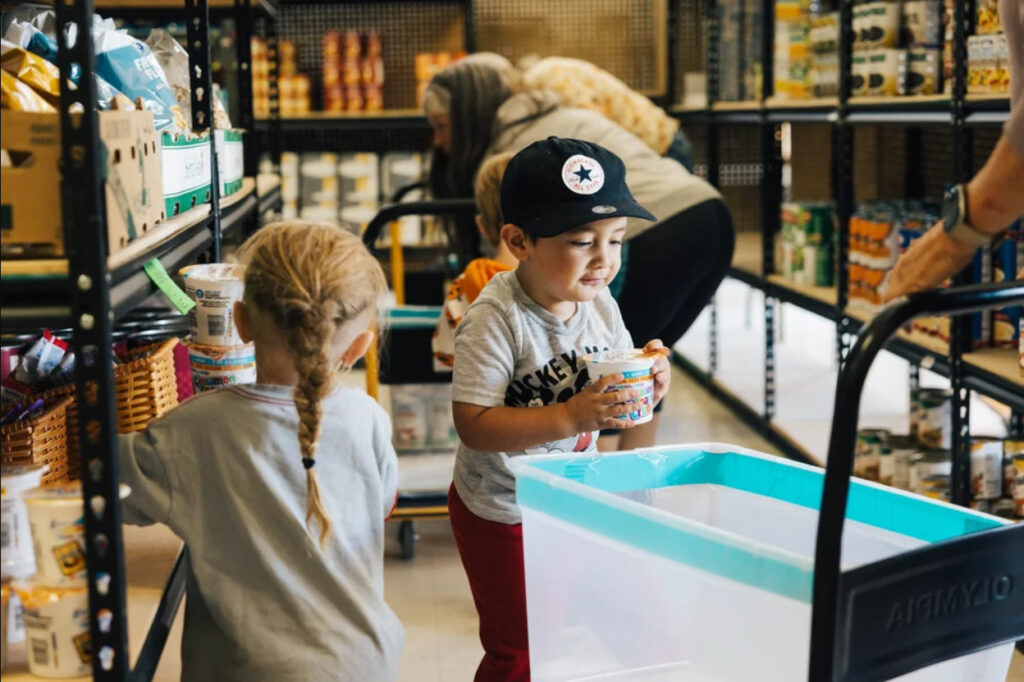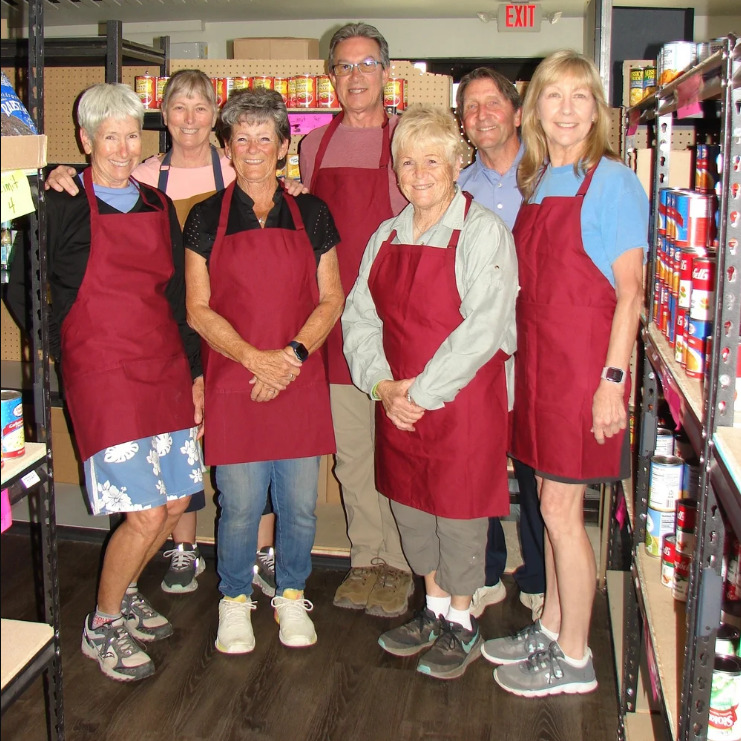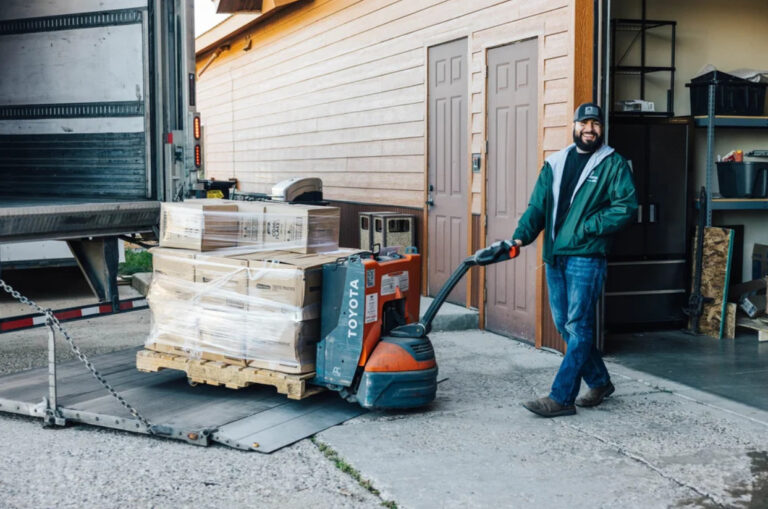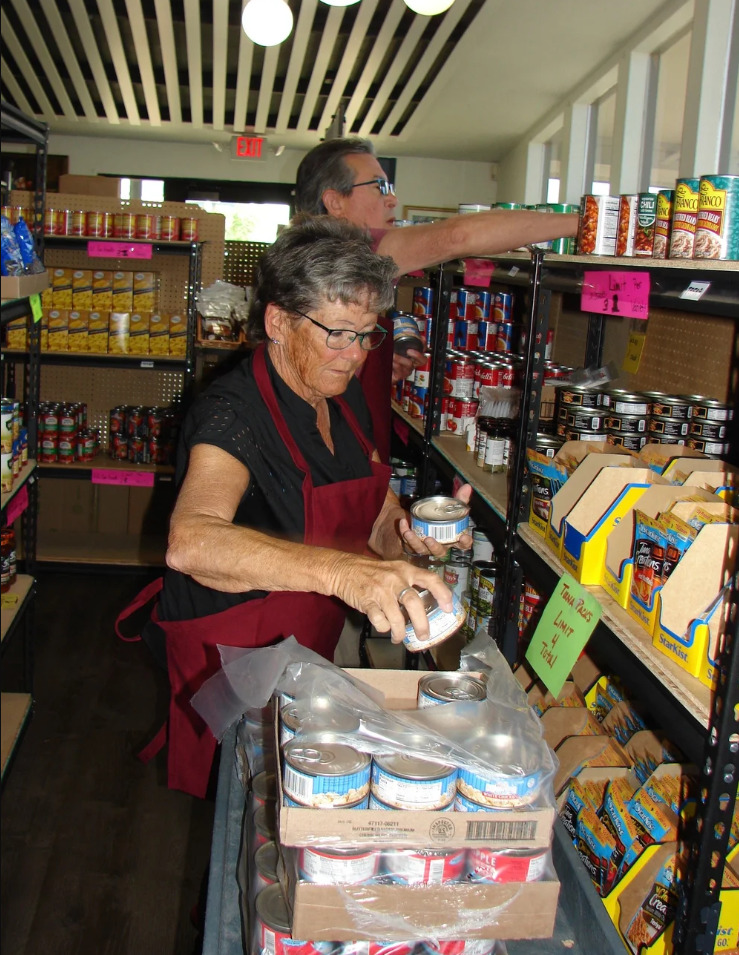Our Community Eats, Pagosa-Based Food Pantry, Aims to Close Hunger Gaps Through Radical Model of Food Dignity
It was after dark when Katherine Solbert and her husband pulled off the highway, exhausted from hours driving on a cross-country road trip. They ducked into a Del Taco, one of the few spots still open. “I was just numb,” she recalls. “You’ve been on the road all day, you’re tired, you just want something to eat.”
Despite the hazy fatigue, Katherine noticed a woman. She was thin, neatly dressed and displayed a kind of restlessness that caught her attention. The woman circled the dining area, then headed toward the condiment bar. She scooped up handfuls of ketchup packets and left. Minutes later, she came back for more. “I thought, that is the weirdest thing I’ve ever seen,” Solbert says. “And then a friend told me that people make tomato soup out of ketchup and hot water. She obviously didn’t have enough to eat.”
A few tables away, two men in dusty work clothes quietly split a small meal. “They must have worked all day,” Katherine remembers thinking. When her own oversized burritos arrived, she cut one in half for her and her husband to share before offering the other to the men. “They were so excited,” she says. “They just kept saying, ‘thank you, thank you, thank you.’ It pierced my heart.”
That 25-minute stop at a fast-food chain, Solbert says, “was a small sampling of what’s out there. People do not have enough to eat.”
Morsels of Mercy
In Pagosa Springs, where the poverty rate hovers near 23 percent—Solbert and a team of devoted volunteers have built a refuge against food insecurity. She is the founder and Executive Director of Our Community Eats (OCE), the largest food pantry in Archuleta County. What began as a cramped 250-square-foot church closet has evolved into a 3,300-square-foot, market-style facility stocked with locally grown, organic foods. Every month, OCE provides groceries to 1,357 families—more than 3,400 individuals—and channels an average of $129,000 worth of food donations through its doors.
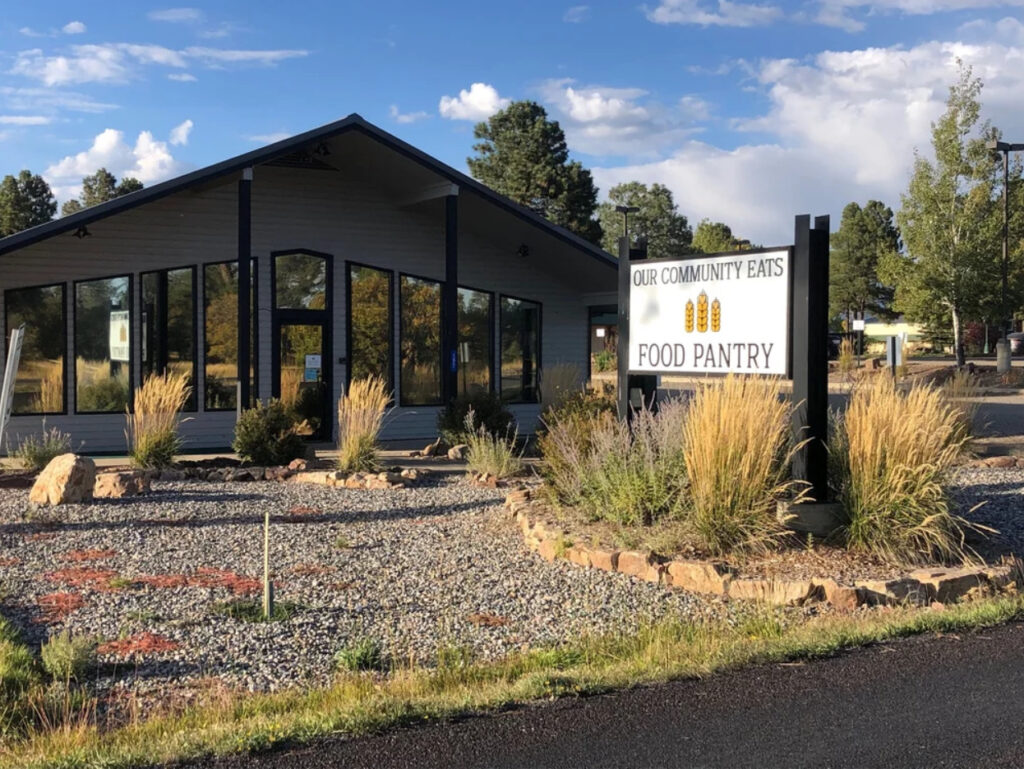
“People don’t realize how widespread food insecurity is,” Solbert says. “If you can cut costs anywhere, it’s going to be your food, because that’s flexible. But your electric bill—that’s gonna be there.”
She knows what hunger feels like. Raised by a single mother who sometimes struggled to fill the cupboards, Solbert remembers the tension of those years. “When you’re a kid, you don’t understand why there isn’t enough to eat,” she says. “It’s really a stress on the parents. I’m sure my mom went to bed crying many times.”
That early experience, coupled with decades of business acumen, now fuels her work. Before founding OCE, Solbert spent 22 years running her own outdoor apparel company, managing multiple retail stores and wholesale accounts in Vermont. “I knew inventory, product control, how to stay on top of demand and supply,” she explains. “Those skill sets helped me greatly in starting this nonprofit.”
Little Miracles
When she joined the small volunteer pantry in 2021, she was told it had become a “fire hazard”—too many people, too little space. But relocation seemed impossible. The old Sears building they considered renting cost far more than the group could afford. Then, as has happened repeatedly in OCE’s short history, the right donor appeared at the right moment.
 “One donor offered to pay the rent for a year,” she recalls. Later, another supporter stepped forward to buy the pantry’s permanent home—$700,000 for the building, plus funds for renovations and maintenance. When OCE needed a refrigerated van to haul fresh produce from local farms, another donor wrote the $60,000 check, then added $40,000 more for upkeep and a vinyl wrap.
“One donor offered to pay the rent for a year,” she recalls. Later, another supporter stepped forward to buy the pantry’s permanent home—$700,000 for the building, plus funds for renovations and maintenance. When OCE needed a refrigerated van to haul fresh produce from local farms, another donor wrote the $60,000 check, then added $40,000 more for upkeep and a vinyl wrap.
These “miracles,” as Solbert calls them, have allowed her to hold firm against calls to ration food. “Someone told me I should start limiting what we give out,” she says. “But I can’t do that. I have a lot of faith in God that He’s going to provide for all of us.”
That faith, she says, is what keeps her motivated. Although she should be enjoying retirement and time with her grandchildren, she usually works 40 hours a week serving OCE.
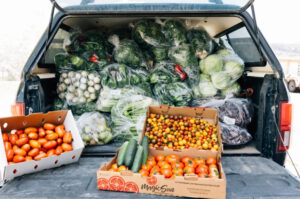 Now she’s planning the pantry’s next evolution: a commercial kitchen that can turn excess farm produce into ready-made meals for seniors and families. “We get these huge donations—fifty-pound bags of potatoes, or boxes of asparagus—and we can’t distribute it fast enough before it spoils,” she explains. “If we had a kitchen, we could make potato soup, scalloped potatoes, coleslaw, stuffed cabbage rolls—things people will actually eat.”
Now she’s planning the pantry’s next evolution: a commercial kitchen that can turn excess farm produce into ready-made meals for seniors and families. “We get these huge donations—fifty-pound bags of potatoes, or boxes of asparagus—and we can’t distribute it fast enough before it spoils,” she explains. “If we had a kitchen, we could make potato soup, scalloped potatoes, coleslaw, stuffed cabbage rolls—things people will actually eat.”
The kitchen would also give local chefs and volunteer bakers a chance to serve their community. “I bake bread for the pantry myself,” she says. “I delivered 60 loaves this morning. But imagine if we had deck ovens and a space for others to join in.”
That mix of practicality and compassion defines Solbert’s approach. OCE’s market-style layout lets patrons choose their own groceries—no prepacked boxes, no judgment, no proof of need required. “It gives people dignity,” she says. “They get to pick what they’ll actually eat. It reduces waste, and it respects choice.”
Building a Circular Economy of Care
Food waste, of course, is where another local enterprise—Table to Farm Compost—enters the story. The composting company collects organic waste from households and businesses across the region, transforming it into rich soil amendments used by many of the same farmers who supply OCE.
“We work hand-in-hand,” Solbert says. “You’re in the beginning and I’m in the end. But we need each other. If we can make the food more nutritious by enriching the soil right here…if we can give farmers a way to grow robust plants—it really matters.”
The relationship forms a kind of closed loop: what’s uneaten becomes compost; what’s composted becomes nourishment again. For Solbert, it’s a fitting metaphor for the local economy of care she’s building—one where donations don’t just feed the hungry, but also sustain the farmers and ranchers who make that food possible. “When you donate to the pantry,” she says, “you’re not only feeding our community, you’re supporting our farmers. Your dollar goes four-fold.”
Having made hunger’s acquaintance, Solbert wants to make it an unwelcome stranger in her town. “I have starved before,” she says, sounding fed up with the world’s food insecurity. At least locally, the mission of OCE can insure that residents of southwest Colorado will be properly fed up.

